
When it comes to running a dishwasher, there are three main components that are essential for a clean and spot-free result: detergent, rinse aid, and water. While detergent and water are the safest and simplest ingredients, rinse aid is often overlooked but plays a crucial role in the dishwasher’s performance. But what exactly is rinse aid and why do you need it? Let’s take a closer look.
Rinse aid is a liquid additive that is poured into a dishwasher’s dispenser to improve the overall cleaning process. It helps to remove any remaining food particles and detergent residue, resulting in cleaner and better-dried dishes. Rinse aid works by reducing the surface tension of the water, allowing it to flow freely and evenly over the dishes, glassware, and silverware. This shift in the water’s behavior prevents watermarks, spots, and streaks from forming on the dishes, especially on glassware.
But what happens if you run your dishwasher without rinse aid? While it’s technically possible to skip using rinse aid, your dishwasher’s performance may suffer. Without rinse aid, you may notice that your dishes come out spotty, with watermarks and streaks. This is because the water droplets don’t separate as well as they should and adhere to the dishes, leaving behind residue and spots. So, if you want your dishwasher to work at its best and deliver cleaner, drier dishes, it’s better to use rinse aid.
There are some alternatives to commercial rinse aids. One popular choice is using vinegar instead. Vinegar is known for its acidic properties, which helps to eliminate water spots and residue. However, using vinegar in the rinse aid dispenser may cause long-term damage to the dishwasher’s rubber seals and other components, as the acidity can degrade them over time. Another option is using a homemade rinse aid recipe, such as combining water and rubbing alcohol or using a small amount of dish detergent. These alternatives, while not as effective as commercial rinse aids, can provide some improvement in dish drying.
In conclusion, while it’s possible to run a dishwasher without rinse aid, it’s not recommended if you want cleaner, drier dishes. Rinse aid is an essential component that helps to prevent water spots, streaks, and residue, ensuring that your dishwasher works at its best. Commercial rinse aids are the most effective and reliable option, but if you prefer a more environmentally-friendly approach, you can try some alternative methods. Just remember to choose options that are safe for your dishwasher and won’t cause any long-term damage.
Will a Dishwasher Function Properly Without Rinse Aid?
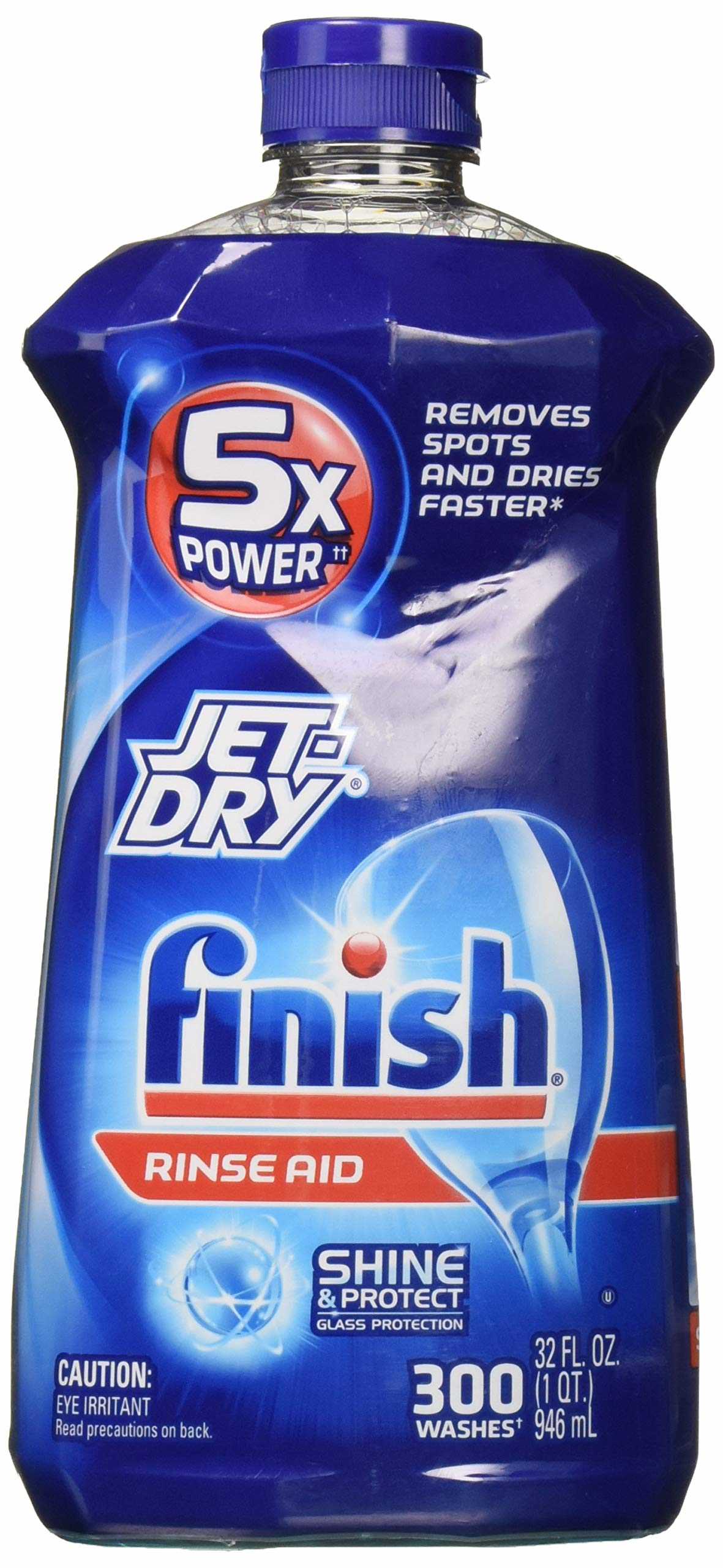
Many people wonder if their dishwasher will work properly without using rinse aid. Rinse aid is a liquid additive that helps to prevent water spots and improve drying performance in dishwashers. While rinse aid can be useful, it is not absolutely necessary for the dishwasher to function properly.
The Purpose of Rinse Aid
The main purpose of rinse aid is to help eliminate water spots and improve the drying process in your dishwasher. It works by reducing the surface tension of the water, allowing it to flow off the dishes more easily and leaving them with a streak-free shine.
Alternatives to Rinse Aid
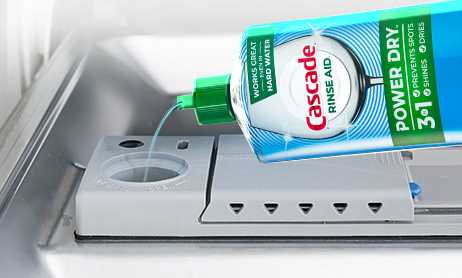
If you prefer not to use rinse aid or have run out of it, there are a few alternatives you can try:
- Vinegar: Vinegar is a natural cleaning agent and can help to prevent water spots. Simply add about 1/4 cup of white vinegar to the rinse aid dispenser instead of rinse aid.
- Oxiclean: Oxiclean is another alternative that can be used in place of rinse aid. You can add a small amount of Oxiclean to the dishwasher’s rinse aid dispenser.
- Acidity: Some acidic substances, such as lemon juice or citric acid, can also help to prevent water spots. You can add a small amount of these substances to the rinse aid dispenser.
Do You Really Need Rinse Aid?
While rinse aid can be beneficial, it is not absolutely necessary for the dishwasher to function properly. The dishwasher will still clean your dishes without it, but you may notice more water spots and your dishes may not dry as well.
If you decide to skip using rinse aid altogether, you can try using a high-quality dishwasher detergent that includes a built-in rinse aid component.
The Conclusion
In conclusion, a dishwasher can still function properly without using rinse aid. While rinse aid can help to improve drying performance and reduce water spots, there are alternative options available. Whether you choose to use rinse aid or not, the most important thing is to keep your dishwasher clean and in good working condition to ensure the best possible results for your dishes.
Explained: Is Dishwasher Rinse Aid Really Necessary
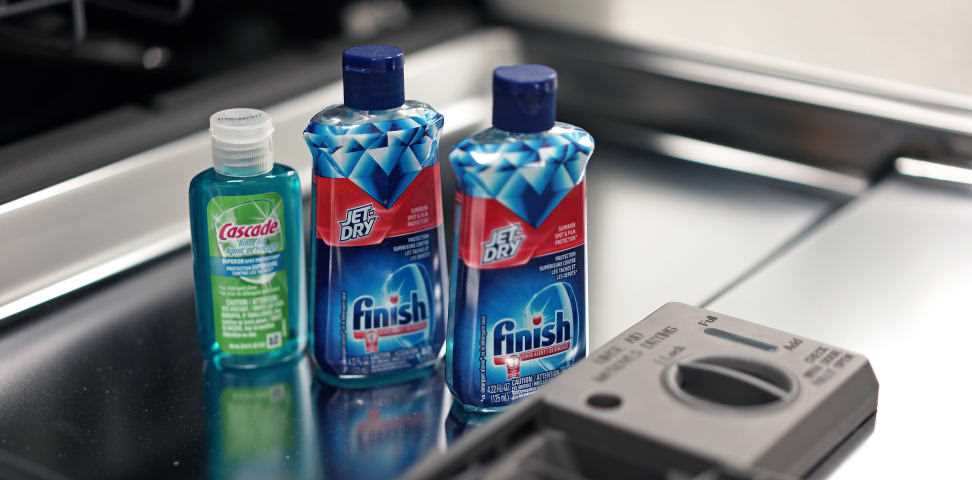
When it comes to using a dishwasher, there are a few key factors that can affect its performance. One such factor is the use of rinse aid. But is dishwasher rinse aid really necessary?
The main function of rinse aid is to speed up the rinse cycle of your dishwasher. It helps to ensure that all dishes and glassware come out sparkling clean and free from water spots. Rinse aid acts as a surfactant, reducing the surface tension of water and allowing it to spread more evenly across the dishes, preventing water spots and promoting faster drying.
So, if you want your dishes to come out as clean and spot-free as possible, using rinse aid is recommended. However, there are alternative options available that can still provide good results.
Alternative Options
If you don’t want to use rinse aid, there are a few things you can try instead. One option is to use vinegar as a natural rinse aid. Simply pour vinegar into the rinse aid compartment of your dishwasher and run a cycle as usual. Vinegar helps to remove water spots and leaves your dishes looking cleaner.
Another alternative is to use citric acid. Citric acid can be found in powder form and can be used in place of rinse aid. Simply add a small amount of citric acid to your dishwasher before starting a cycle. Citric acid helps to improve the cleaning performance of your dishwasher, leaving your dishes spotless and shiny.
Environmental Considerations
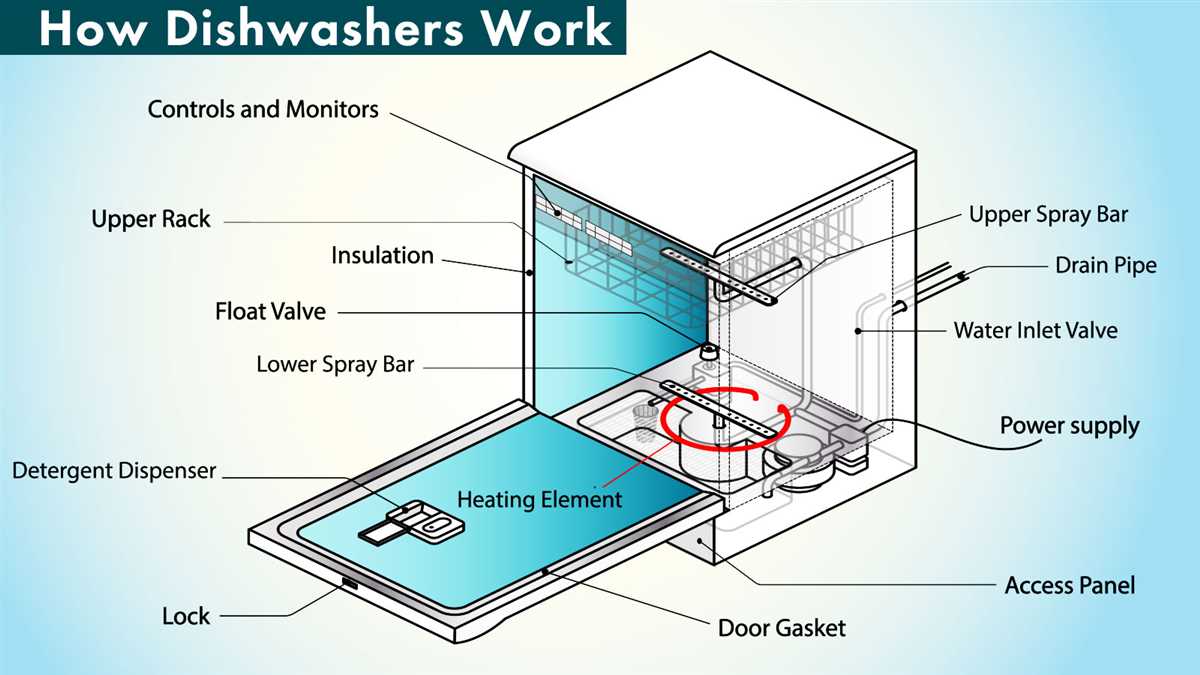
While rinse aid can improve the performance of your dishwasher, it is important to consider its impact on the environment. Many rinse aids contain chemicals that may not be environmentally friendly.
If you want a more environmentally friendly option, using vinegar or citric acid as alternatives to rinse aid is a better choice. These natural options are safer for the environment and can still provide good cleaning results.
Conclusion
In conclusion, while dishwasher rinse aid is not absolutely necessary, it can greatly improve the cleanliness and appearance of your dishes. However, there are alternative options available, like vinegar and citric acid, that can be used instead.
Whether you choose to use rinse aid or opt for a natural alternative, it is important to take into account the specific needs of your dishwasher and dishware. Ultimately, the decision to use rinse aid or not is up to you.
What Are the Safest Brands of Rinse Aid?
If you’re wondering what brands of rinse aid are considered the safest to use in your dishwasher, you’re not alone. Many people want to know which rinse aid brands they can trust to deliver optimal performance without compromising their health or the environment. While there are several options available, here are some of the top choices:
1. Seventh Generation Rinse Aid
This brand is known for its commitment to producing environmentally friendly products. Seventh Generation Rinse Aid is free of synthetic fragrances and dyes, making it a safer choice for those with sensitive skin or allergies. It also uses plant-based ingredients, making it a more sustainable option.
2. Ecover Rinse Aid
Ecover is another eco-conscious brand that offers a rinse aid that is safe for both people and the planet. Their rinse aid is made with plant-based ingredients and is free of phosphates and chlorine. It is also biodegradable, further reducing its environmental impact.
3. Better Life Dishwasher Rinse Aid
Better Life is a brand that focuses on creating safe and effective cleaning solutions. Their dishwasher rinse aid is made with plant-derived ingredients and is free of harsh chemicals like alcohol and chlorine. It is also cruelty-free and vegan, making it a popular choice among those with a more ethical lifestyle.
4. Lemi Shine Rinse Aid
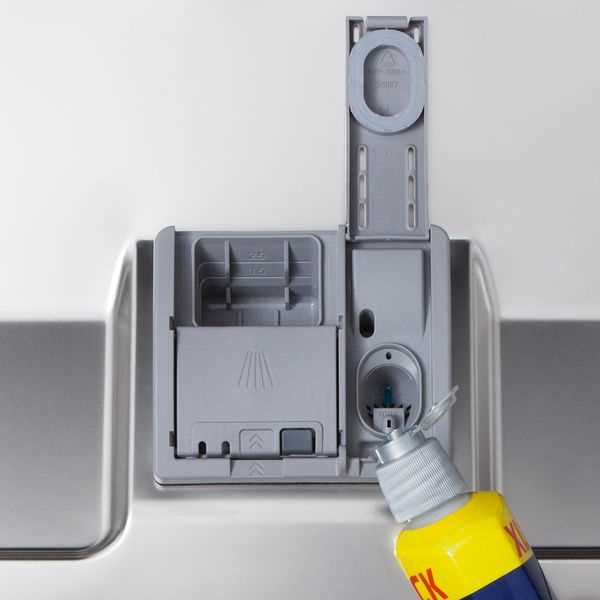
Lemi Shine Rinse Aid is a popular choice among those who want a rinse aid that delivers spot-free dishes. It is free of toxic ingredients and utilizes citric acid to help improve the cleanliness and appearance of your dishware. It is also compatible with all dishwasher detergents, making it easy to incorporate into your routine.
These are just a few examples of the safest rinse aid brands available on the market. It’s important to read product labels and research specific brands to ensure they meet your personal criteria for safety and effectiveness.
In conclusion, using rinse aid in your dishwasher is not necessary for it to function properly, but it can greatly improve its performance. If you want spot-free and drier dishes, using a rinse aid is recommended. There are many safe and environmentally friendly options available, so you can choose the one that aligns with your preferences and values.
What Can You Use as an Alternative to Rinse Aid?
If you’re looking for an alternative to rinse aid for your dishwasher, there are a few options you can try. While rinse aid is commonly used to improve the drying process and prevent water spots on dishes, there are alternative products and simple recipes that can achieve similar results.
Dishwasher Detergents
- One alternative is to use dishwasher detergents that already contain rinse aid properties. Many brands now offer detergent tablets or pods that combine cleaning agents and rinse aid, eliminating the need for a separate rinse aid product.
- Some dishwasher detergents also contain a surfactant, which helps to prevent watermarks and improve drying efficiency. These detergents create a sheeting action on the dishes, assisting in the removal of water and leaving them dry and spot-free.
- Consider using dishwasher detergents that are specifically formulated for hard water. These detergents often have extra rinse aid properties to combat the effects of mineral buildup and leave the dishware looking clean and shiny.
White Vinegar
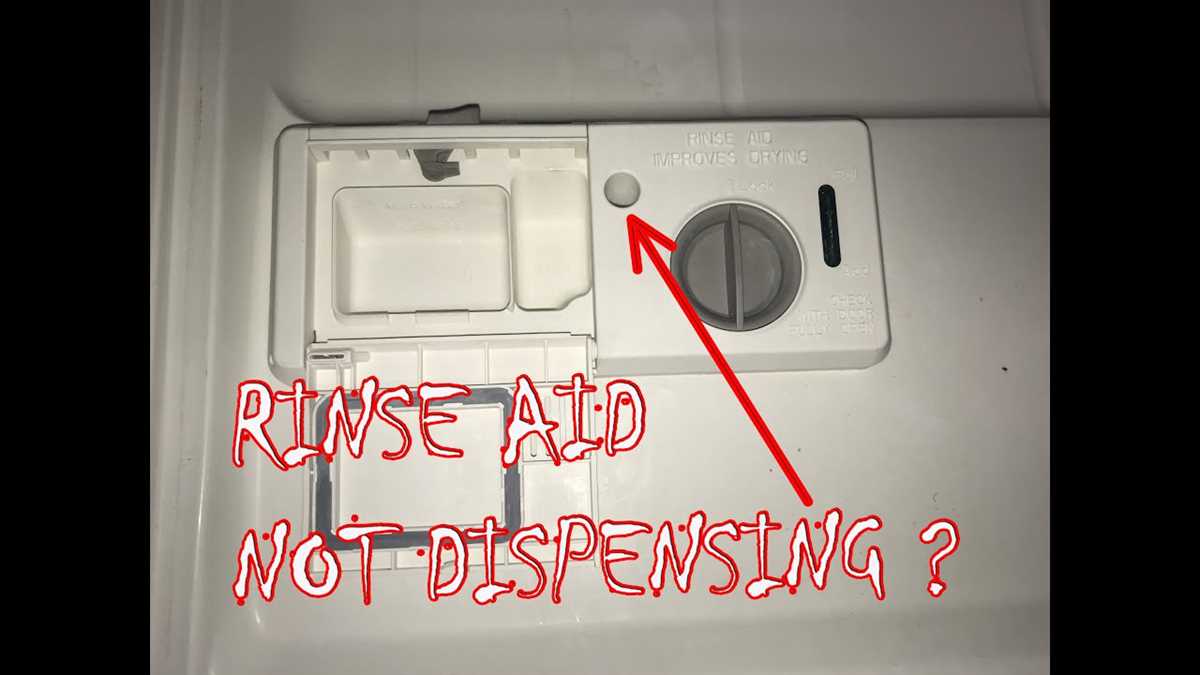
White vinegar is a popular and inexpensive alternative to rinse aid. Simply pour a small amount of white vinegar into the rinse aid compartment of your dishwasher. The acid in the vinegar helps to remove mineral deposits and create a spot-free shine on your dishes. However, make sure to use vinegar sparingly, as too much can leave behind a strong scent.
Lemon Juice
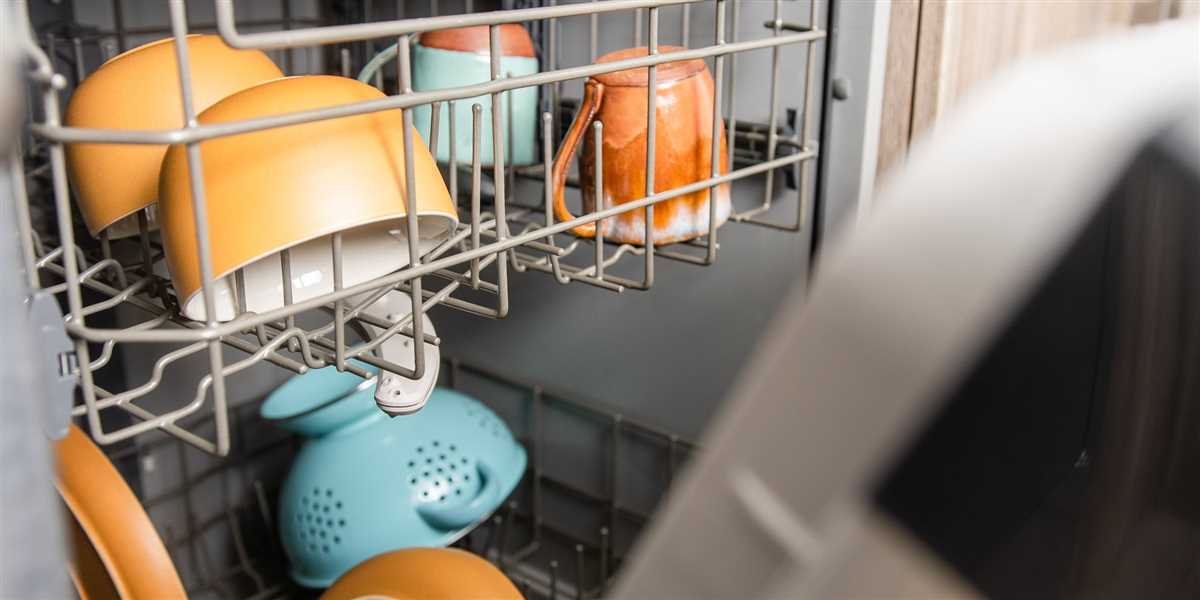
Another natural alternative is lemon juice. The citric acid in lemon juice helps to prevent water spots and adds a fresh scent to your dishes. Fill the rinse aid compartment with lemon juice and run the dishwasher as usual. Just like with vinegar, be careful not to use too much lemon juice, as it can leave an overpowering smell.
These alternatives to rinse aid can be effective in improving drying and reducing water spots on your dishes. Remember to experiment with the right amount for your dishwasher and adjust accordingly.
Is Rinse Aid Necessary For Clean Dishes?
If you want your dishes to come out of the dishwasher sparkling clean and spot-free, using a rinse aid can actually make a big difference. While it may not be necessary for every dishwasher cycle, rinse aid can greatly improve the overall cleanliness of your dishware.
The science behind rinse aid is quite interesting. When the dishwasher’s rinse cycle begins, hot water is sprayed onto the dishes to remove any remaining detergent. However, without the use of rinse aid, water droplets can cling to the dishes, leaving spots and streaks. Rinse aid helps to reduce the surface tension of the water, causing it to spread out evenly and dry more quickly, resulting in cleaner and shinier dishes.
In addition to improving the appearance of your dishes, using rinse aid can also help to extend the lifespan of your dishwasher. The rinse aid helps to keep the dishwasher’s door seal lubricated, preventing any leaks or damage that could occur over time. This, in turn, can keep your dishwasher working properly for longer.
While rinse aid is commonly used in dishwashing, there are alternatives that you can use if you prefer not to use it. One alternative is to add vinegar to the rinse aid compartment. Vinegar acts as a natural cleaner and can help to reduce the appearance of spots and streaks on your dishes. However, it may not be as effective as a dedicated rinse aid.
It’s worth noting that not all dishwasher detergents are created equal. Some brands are known to have built-in rinse aid properties that can help to reduce the need for a separate rinse aid. For example, Wirecutter conducted a test comparing different dishwasher detergents and found that three brands, Ecover, Seventh Generation, and Ecostore, all performed well without the use of a rinse aid.
In conclusion, while using a rinse aid is not absolutely necessary for clean dishes, it can greatly improve the cleanliness and appearance of your dishware. Whether you choose to use a rinse aid, vinegar, or rely on certain dishwasher detergent brands, finding the right combination for your dishwasher and lifestyle will help ensure that your dishes come out looking their best.
Can I Use Vinegar Instead of Rinse Aid?
If you’ve ever run out of rinse aid for your dishwasher, you may have wondered if you can use vinegar as a substitute. The short answer is yes, you can use vinegar instead of rinse aid in your dishwasher. However, there are a few things to consider.
The Benefits of Rinse Aid
- Rinse aid is a surfactant, which helps to improve the efficiency of your dishwasher detergent by reducing the surface tension of water. This helps to prevent water spots and streaks on your dishes, glasses, and utensils.
- Rinse aids also help to speed up the drying process in your dishwasher, ensuring that your dishes come out clean and dry.
- Some dishwasher manufacturers recommend the use of rinse aid to achieve optimal cleaning and drying results.
Why Use Vinegar Instead?
If you’re in a pinch and don’t have any rinse aid on hand, vinegar can be a suitable alternative. Here’s why:
- Vinegar is a natural cleaner and can help to remove grease and mineral deposits from your dishes.
- Vinegar is safe to use in your dishwasher and won’t damage the machine or any of the items you’re cleaning.
- Vinegar is a readily available and affordable option that many people already have in their homes.
- Using vinegar instead of rinse aid can be a more environmentally friendly choice, as it avoids the use of chemical-filled rinse aid products.
How to Use Vinegar as a Rinse Aid
If you decide to use vinegar as a rinse aid in your dishwasher, here’s what you need to do:
- Fill the rinse aid compartment with vinegar instead of commercial rinse aid.
- Run your dishwasher as you normally would and allow it to complete its cycle.
- After the cycle is complete, check to see if your dishes, glasses, and utensils are clean and dry. If you’re satisfied with the results, then using vinegar as a rinse aid may work for you.
It’s worth noting that vinegar may not be as effective as commercial rinse aid in preventing water spots and improving drying. While vinegar can help to clean your dishes, it may not provide the same level of shine and streak-free finish.
In conclusion, while vinegar can be a suitable alternative to rinse aid in your dishwasher, it may not provide the same results. If you’re looking for optimal cleaning and drying, it’s recommended to use rinse aid as recommended by the dishwasher manufacturer. However, if you’re in a pinch and don’t have any rinse aid on hand, vinegar can do the job.
What Is Rinse Aid Anyway?
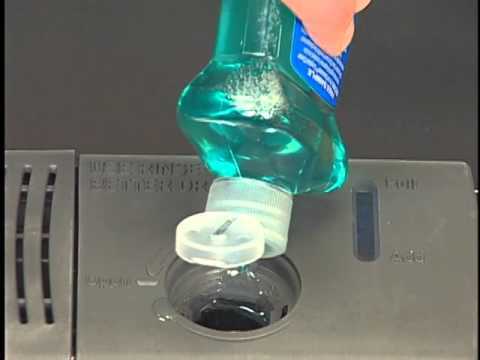
When it comes to dishwashing, most of us want clean, spotless dishes and glassware. Rinse aid is a product that can help achieve that goal. But what exactly is rinse aid and what does it do?
Rinse aid is a liquid that is added to the dishwasher during the rinse cycle to improve the final rinse and drying performance. It is designed to help remove any remaining detergent residue, water spots, and film that may be left behind after the cleaning cycle. Rinse aid contains surfactants and other ingredients that help water to sheet off dishes and glassware, leaving them cleaner and drier.
One of the main benefits of using rinse aid is that it reduces the surface tension of water. This means that when the rinse cycle begins, the water will form thin sheets over the surface of the dishes, which allows the water to drain away more easily. Without rinse aid, water droplets may cling to the dishes and glassware, leading to spots and streaks.
But what if you don’t have any rinse aid on hand? Can your dishwasher still function properly? The short answer is yes, your dishwasher will still be able to clean your dishes without rinse aid. However, adding rinse aid can greatly improve the results.
According to a post on Yahoo Answers, rinse aid can help speed up the drying process, prevent water spots, and make dishes come out cleaner. So, while it’s not absolutely necessary to use rinse aid, it can certainly improve the overall performance of your dishwasher.
If you do decide to use rinse aid, there are several brands available on the market. Some popular brands include Finish, Cascade, and Seventh Generation. These brands offer rinse aids that are designed to work with a wide range of dishwashers.
In conclusion, while it is possible to run a dishwasher without rinse aid, using it can significantly improve the cleanliness and drying speed of your dishes. So, if you want spotless, sparkling dishware, adding rinse aid is definitely worth considering.
FAQ
Will a Dishwasher Function Properly Without Rinse Aid?
Yes, a dishwasher can still function properly without rinse aid. However, using rinse aid can improve the dishwasher’s performance by making dishes cleaner and drier.
Why Dishwasher Rinse Aid Makes Dishes Cleaner and Drier?
Dishwasher rinse aid helps to break the surface tension of water, allowing it to easily slide off the dishes. This helps to prevent water spots and streaks, making the dishes cleaner and drier.
Is Dishwasher Rinse Aid Really Necessary?
No, dishwasher rinse aid is not necessary for the dishwasher to function. However, it can greatly improve the cleaning and drying performance of the dishwasher, resulting in better results.
What Is Rinse Aid Anyway?
Rinse aid is a liquid additive that is used in dishwashers to improve the rinsing and drying performance. It helps to prevent water spots, streaks, and improves the overall cleanliness of dishes.
Can I Use Vinegar Instead of Rinse Aid?
Yes, you can use vinegar as an alternative to rinse aid. Vinegar helps to prevent water spots and streaks, similar to rinse aid. However, vinegar may not be as effective in improving the overall cleaning performance.












